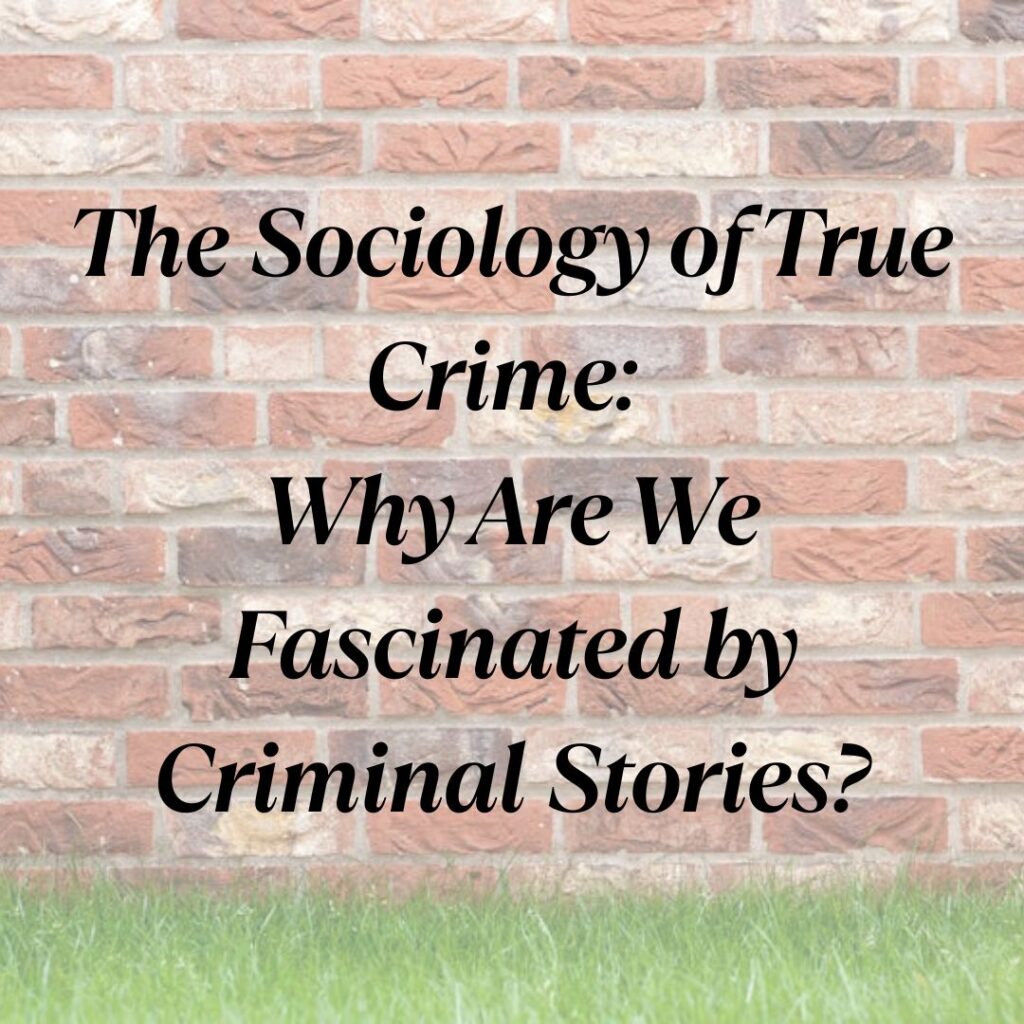True crime stories have gripped our attention for centuries, from infamous historical cases to modern-day documentaries and podcasts. But why are we so captivated by tales of criminal behavior? What drives our fascination with the darker side of human nature? In this detailed exploration, we delve into the sociology behind our obsession with true crime, examining psychological, social, and cultural factors that contribute to this enduring phenomenon.
The Appeal of True Crime
- Psychological Intrigue: One of the primary reasons we’re drawn to true crime is its psychological complexity. Crimes often involve motives, personalities, and behaviors that defy our understanding of normalcy. For instance, infamous serial killers like Ted Bundy or cases like the Zodiac Killer challenge our perceptions of human behavior and morality. Psychologically, delving into these stories allows us to explore the depths of human psyche and the motivations behind criminal acts.
- Voyeuristic Fascination: True crime offers a voyeuristic glimpse into worlds we may never encounter firsthand. Through documentaries, books, and podcasts, we’re able to immerse ourselves in the details of investigations, trials, and criminal minds. This voyeurism satisfies our curiosity about the unknown and provides a sense of thrill and suspense, akin to watching a suspenseful movie.
- Social Commentary: Crime stories often reflect broader societal issues and concerns. For example, cases involving racial injustice, economic disparity, or systemic failures in law enforcement highlight deeper societal flaws. These narratives prompt discussions about justice, ethics, and the role of institutions in shaping our communities. In today’s context, true crime stories serve as a lens through which we examine and critique social structures and norms.
Cultural Significance
- Media Proliferation: The rise of digital media has significantly contributed to the popularity of true crime. Platforms like Netflix, Hulu, and podcasts have created a vast library of true crime content accessible to audiences worldwide. This accessibility not only fuels our curiosity but also fosters a community of enthusiasts who discuss and analyze cases online.
- Narrative Appeal: True crime narratives are often structured like compelling dramas, complete with protagonists (detectives, journalists) and antagonists (criminals). The storytelling aspect—complete with plot twists, red herrings, and resolutions—keeps audiences engaged and invested in the outcome. This narrative structure appeals to our innate love for storytelling and suspense.
- Cathartic Experience: Engaging with true crime can be cathartic for some individuals. It allows them to confront fears in a controlled environment and make sense of the unpredictable nature of crime. By following investigations and trials, audiences seek closure and reassurance that justice can prevail, even in the face of heinous acts.
Relevance to Current Times
In the digital age, true crime has evolved from mere entertainment to a cultural phenomenon that influences public discourse and perceptions. For instance:
- Social Media Influence: Social media platforms amplify true crime stories, enabling instant sharing of information and opinions. Hashtags like #TrueCrime and #CrimePodcast gather communities of followers who discuss cases, share theories, and advocate for justice reforms.
- Legal Reforms and Advocacy: High-profile cases often spark movements for legal reforms or social change. For example, cases like the wrongful conviction of the Central Park Five prompted discussions about racial profiling and criminal justice reform in the United States.
- Ethical Considerations: Ethical dilemmas arise from the portrayal of real-life tragedies for entertainment. Critics argue that sensationalizing crime may exploit victims and their families, leading to ethical debates about the responsible production and consumption of true crime media.
Conclusion
True crime continues to fascinate and provoke thought, offering insights into human behavior, societal norms, and justice systems. Whether driven by psychological intrigue, cultural narratives, or social commentary, our fascination with criminal stories reflects a deeper curiosity about the complexities of human nature and the world we inhabit. As we navigate the evolving landscape of media and society, true crime remains a compelling lens through which we examine the darker aspects of humanity and strive for understanding and justice.
In conclusion, our fascination with true crime is not merely about the crimes themselves but also about what they reveal about us as individuals and societies. It’s a reflection of our collective curiosity, our quest for justice, and our ongoing exploration of the human condition.







